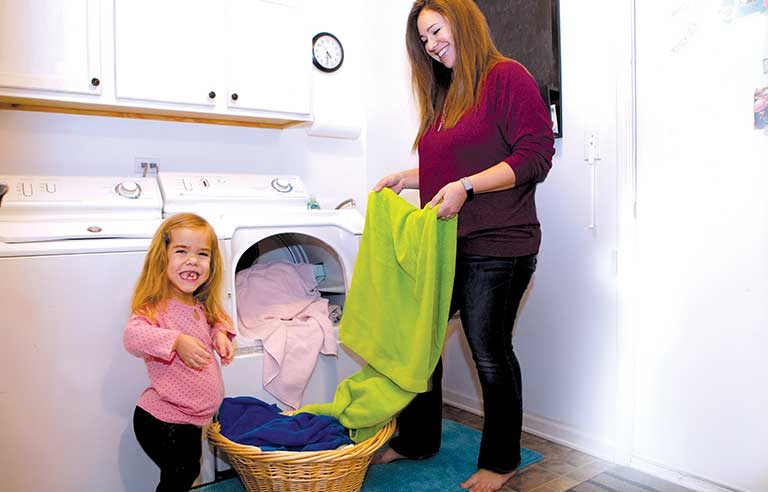Help prevent clothes dryer fires
Do’s and don’ts

Got laundry to do? It’s such a common chore that, for many of us, safe use of our clothes dryer may not be something we think much about.
But we should. The U.S. Fire Administration says that every year, an average of 2,900 home clothes dryer fires cause an estimated five deaths, 100 injuries and $35 million in property damage.
The leading cause of these fires? Failure to clean lint filters and dryer vents. The lint that forms when clothes tumble in the dryer is highly combustible.
Help make your home safer by following these do’s and don’ts from the USFA.
Do’s
- Have your clothes dryer installed and serviced by a professional.
- Clean the lint filter before and after each cycle. Don’t forget to clean the back of the dryer – lint can build up.
- Check the venting system behind the dryer to make sure it isn’t damaged, crushed or restricted.
- Make sure the outdoor vent covering opens when the dryer is in use.
- Have the interior of the dryer and venting system serviced and cleaned periodically by a qualified service technician – especially if it’s taking longer than normal for clothes to dry.
- Have gas-powered dryers inspected by a professional annually to ensure the gas line and connection are intact and free of leaks.
- Make sure the correct electrical plug and outlet are used and that the dryer is connected properly.
- Check periodically to make sure nests of small animals and insects aren’t blocking the outside vent.
- Keep the area around the dryer clear of items that can burn.
- Unplug or disconnect the dryer if you’ll be away from home for an extended time.
Don’ts
- Don’t use the dryer without a lint filter or with one that’s loose, damaged or clogged.
- Don’t dry anything containing foam, rubber or plastic (such as a bathroom rug).
- Don’t dry any item for which manufacturers’ instructions state “dry away from heat.”
- Don’t dry items that have come into contact with flammable substances – for example, alcohol, cooking oils or gasoline. Instead, dry them outdoors or in a well-ventilated room, away from heat.
- Don’t leave the dryer running if you leave home or when you go to bed.
Post a comment to this article
Safety+Health welcomes comments that promote respectful dialogue. Please stay on topic. Comments that contain personal attacks, profanity or abusive language – or those aggressively promoting products or services – will be removed. We reserve the right to determine which comments violate our comment policy. (Anonymous comments are welcome; merely skip the “name” field in the comment box. An email address is required but will not be included with your comment.)
